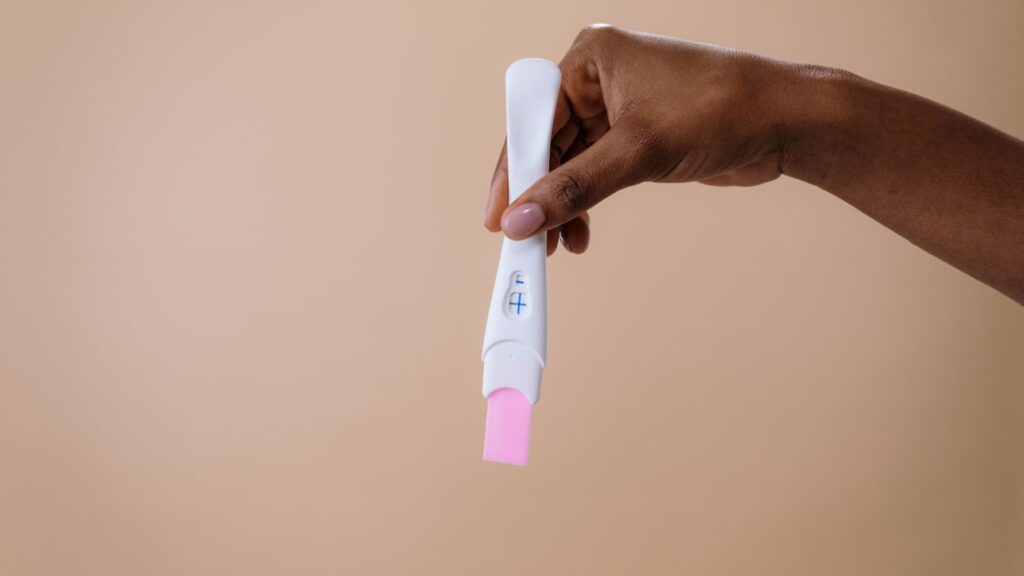Just as it’s crucial for humans, understanding a dog’s pregnancy status is equally significant. Whether you’re a breeder or a pet owner who’s noticed some changes in your furry friend, a dog pregnancy test can provide the answers you need. This article will delve into the fascinating world of canine reproduction, focusing on the ins and outs of dog pregnancy tests.
From the earliest signs of pregnancy to the most reliable testing methods, we’ll explore everything you need to know. We’ll also discuss when it’s time to take your dog to the vet and how to care for your pregnant pooch.
Understanding Dog Pregnancy: A Brief Overview
Canine pregnancies differ greatly from human ones. Typical dog pregnancies last between 58 to 68 days, shorter than the human gestation period. Specific physical and behavioural changes in the animal mark the progression. Monitoring these symptoms provides valuable insights, but definitive confirmation usually stems from a dog pregnancy test.Vital signs show the first indications. About one month in, an enlarged belly, increased appetite, and behavioural shifts such as increased affection emerge.
Next in line stand hormonal changes. Approximately 20 to 30 days post conception, the hormone Relaxin that facilitates pregnancy, increases in the bloodstream. A dog pregnancy blood test identifies these levels providing a reliable diagnosis.
An ultrasound serves as another accurate tool. A trained technician conducts it around the 25th day mark. It serves two purposes- confirms the pregnancy and forms an initial health evaluation of the pups. Using ultrasound images, veterinarians assess the number and health of the soon-to-arrive litter.

Importance of Dog Pregnancy Test
Dog pregnancy tests play a central role in diagnosing pregnancies, providing peace of mind for dog owners, and promoting optimal health for canines. For breeders, they offer precise information on when to expect new puppies and help in planning care accordingly.
Firstly, dog pregnancy tests offer certainty. Physical changes and altered behaviour can indicate a dog’s expectancy, yet these signs don’t always guarantee pregnancy. Secondly, dog pregnancy tests allow for timely preparations. With accurate confirmation of a dog’s pregnancy, breeders and dog owners can begin arranging the necessary care. This care includes a change in nutrition, offering more frequent but smaller meals, organised exercise routines, and scheduled veterinary checks. The gestation period for dogs typically lasts between 58 to 68 days; therefore, knowing precisely when to expect the puppies can be quite beneficial.
Lastly, frequent testing aids in identifying potential complications early. Tests not only diagnose pregnancy, but regular iterations can also help monitor the dog’s health status during pregnancy. Any sudden drops in Relaxin levels may be indicative of potential issues such as miscarriage or absorption.

Different Types of Dog Pregnancy Tests
Dog Pregnancy tests, crucial for pet owners and breeders, come in various formats. It’s essential to know about them, their utility, timings for accurate results, and more.
Firstly, urine-based dog pregnancy test kits, similar to human pregnancy tests, detect the presence of Relaxin hormone in the dog’s urine. A common example, Witness Relaxin Detection Kit, offers rapid results, typically within 10 minutes. However, it’s important to note that this test gives accurate results only after the dog is 30 days into the gestation period, after which Relaxin levels rise significantly.
Secondly, blood-based pregnancy tests also detect Relaxin amounts in the bloodstream. While slightly more invasive, they give more accurate outcomes. The BioMetallic Relaxin Canine Pregnancy Test is an instance. Results can be obtained within 2 hours, but the dog must be at least 20 days into the gestation period for precise results.
Thirdly, veterinary ultrasound, the most reliable dog pregnancy test, visualises the embryos inside the uterus. While pricier and requiring a visit to a vet clinic, it gives definitive results as early as 21 to 25 days into the pregnancy. Accuracy increases with gestational age and it also helps detect complications.
